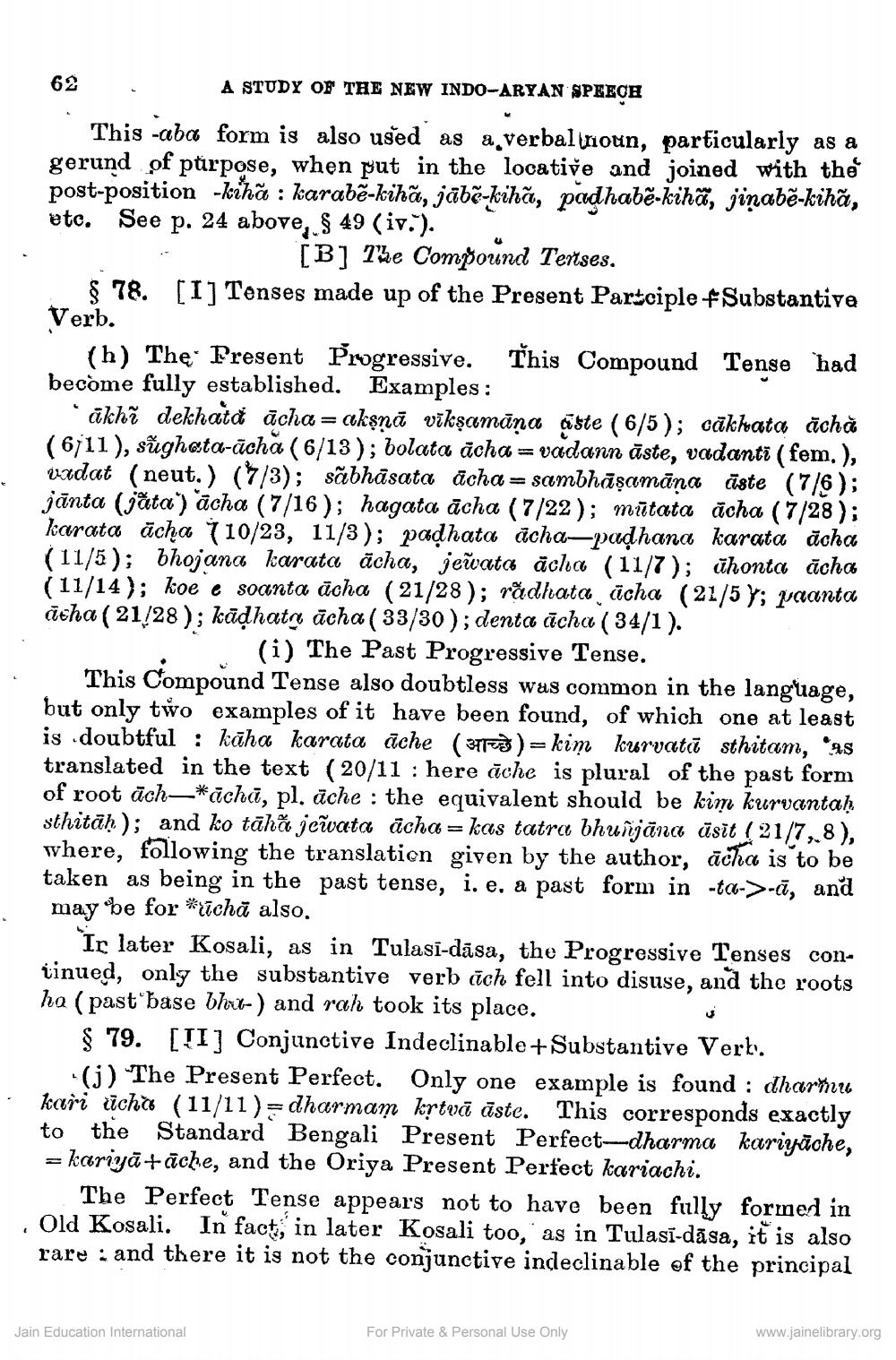________________
62
A STUDY OF THE NEW INDO-ARYAN SPEECH This -aba form is also used as a verbaltioun, particularly as a gerund of purpose, when put in the locative and joined with the post-position -kihã : karabe-kihã, jābē-kiha, padhabê-kihã, jinabě-kihã, etc. See p. 24 above, $ 49 (iv.).
[B] Ike Compound Tertses. $ 78. [1] Tenses made up of the Present Partciple Substantive Verb.
(h) The Present Progressive. This Compound Tense had become fully established. Examples:
'äkhã dekhatá acha = akşnā vīkşamāna aste (6/5); cākhata ächào (6)11), săgheta-āchă (6/13); bolata acha = vadann āste, vadanti (fem.), vxdat (neut.) (7/3); sõbhāsata ācha = sambhāşamāna üste (7/6); jānta (jäta)ācha (7/16 ); hagata acha (7/22 ); mütata acha (7/28); karata ācha 1 10/23, 11/3); padhata acha-padhana karata acha (11/5); bhojana karata ācha, jewata acha (11/7); ühonta acho (11/14); koe e soanta ācha (21/28 ); rådhata ucha (21/5 y; paanta acha(21/28); kādhatrācha ( 33/30); denta ūcha ( 34/1).
(i) The Past Progressive Tense. This Compound Tense also doubtless was common in the language, but only to examples of it have been found, of which one at least is doubtful : kāha karata ache (33)=kim kurvatcī sthitam, as translated in the text (20/11 : here ache is plural of the past form of root āch—*acha, pl. āche : the equivalent should be kim kurvantaḥ sthitāḥ); and ko tāhā jcwata acha = kas tatra bhuñjānc ăsit (21/7, 8), where, following the translation given by the author, acha is to be taken as being in the past tense, i. e. a past form in -ta->-cē, and may be for *tchă also.
Ir later Kosali, as in Tulasi-dāsa, the Progressive Tenses coniinued, only the substantive verb ich fell into disuse, and the roots ha (past base bhrix-) and rah took its place.
$ 79. [II] Conjunctive Indeclinable + Substantive Verki.
(i) The Present Perfect. Only one example is found : dhartu kari üchto (11/11 )=dharmam krtvā āste. This corresponds exactly to the Standard Bengali Present Perfect-dharma kariyãche, = kariyātāche, and the Oriya Present Perfect kariachi.
The Perfect Tense appears not to have been fully formed in Old Kosali. In fact, in later Kosali too, as in Tulasi-dása, it is also rare : and there it is not the conjunctive indeclinable of the principal
Jain Education International
www.jainelibrary.org
For Private & Personal Use Only




